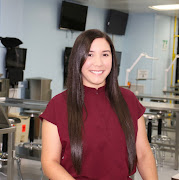www.jailennequinones.com in collaboration with QMA
The transition from high school to college is an exciting and scary time in your life and for most people. This is the biggest adaptation you make in your life up until this point. Before you leave the nest without looking back, think about what you’ll do to help yourself make it a smooth transition.
During high school, I had the experience of moving from one private to a public one and starting fresh in a new high school. Theoretically, the teaching system is the same but, the change of environment was quite different. With that move under my belt, I thought the conversion from high school to college would be an easy one for me. As well, I consider myself to be independent in this aspect. After school, I completed my assignments by myself, I kept my room clean without my parents asking. And I could prepare basic meals and take care of myself.
Before freshman year began, I also connected with close classmates and knew of several people from high school who would be attending the same college. The adaptation from high school to college didn't intimidate me or make me anxious at all.
But as it turned out, moving on to college from high school life was tough. The dropout rate of college freshmen in the United States is a staggering 30%. Many colleges now have transition programs in place to help freshmen make a smooth transition and to try to lower than 30%.
Here are the BEST 4 tips to help your transition a smooth one:
Meet people who share common interests
First, academics proved to be a struggle as classes became more demanding than what I had experienced in high school courses. Of course, the amount of material intimidated me at first, in addition to the fact that I was always in advanced groups and that helped me keep studying in order to be competitive. College required more effort to study for exams and stay on top of assignments.
Personally, I am a very sociable person although I consider myself shy. That can be contradictory but being sociable helped me at first to make the process manageable because I met people with common interests and we helped each other in the tasks, study for exams, and participate in different activities.
Explore group associations and extracurricular services
Once I started the second semester, the transition was bearable with family support, old friendships, and new friendships with common interests. Over time I began to feel more comfortable with the environment and applied to be a member of several associations which interested me. College partnerships are the best investment of time where you can not only meet other people, but you also could do community and extracurricular service. It has taught me time management skills and how to work in a group. It also surrounded me with love and great friendships that I would not have been able to find elsewhere.
Use student resources
College campuses are full of resources to help students succeed, but the trick is that you must seek them out. Almost all campuses have writing centers and tutors available to students, and professors hold office hours for students to get extra help or ask questions.
Treat your body well
Beginning or continuing an unhealthy lifestyle while you’re going through so many other changes just makes the transition that much harder. According to success, you need good food, sleep, and exercise to be successful. When you treat your body well, you feel better and more motivated, so this creates a positive snowball effect for every other aspect of your life.
If you're a student feeling uncertain about your college experience, or a high schooler headed to college this fall, take some advice from family or professors. It might take a bit of time to find your footing on campus. The environment will feel unfamiliar, and you likely won't have your friends and family around you to make life comfortable. But if you're patient with yourself and branch out to try new things and find people who share your interests, you'll eventually find your niche. And once you do, college will be a fun and growing experience.
About the author:
Jailenne I. Quiñones-Rodriguez is a Ph.D. candidate in the Department of Anatomy and Cell Biology at Universidad Central del Caribe – School of Medicine (UCC-SOM) and is a current Junior Research Associate from Puerto Rico IDeA Network Biomedical Research Excellence (PRINBRE). She is a first-generation scientist in her family and received her Bachelor of Science in Biomedical Sciences from the University of Puerto Rico at Ponce. In 2015, she joined the graduate program at UCC-SOM. During her Ph.D., she graduated with honors from a master's degree in Anatomy and Biomedical Sciences. Her evident interest in human anatomy and neuroanatomy has led her to coordinate, instruct, and mentor medical students with interest in the surgical field through an outreach anatomy project, which promotes clinical anatomy research while the students could do peer teaching.



Comments
Post a Comment